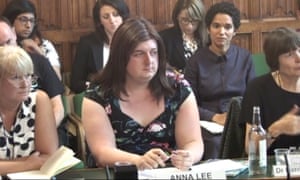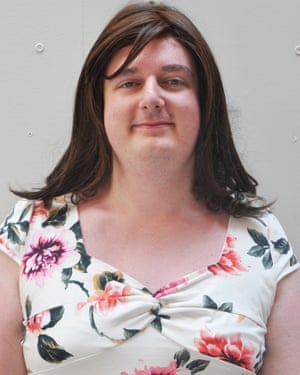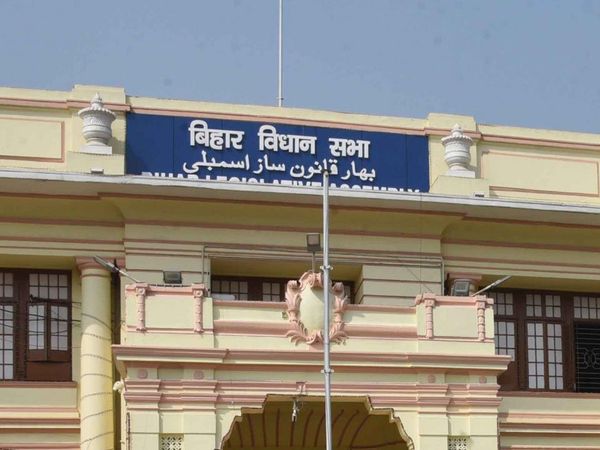Anna Lee, who calls herself a ‘queer trans disabled lesbian woman’, says online trolling and personal abuse highlight the importance of her campaign

The first “queer trans disabled lesbian woman” to run for women’s officer at the National Union of Students (NUS), Anna Lee, celebrated her birthday on Tuesday by giving herself a rest from interacting with online abusers, trolls and transphobes.
Since announcing late last week on Facebook that she would run for the position, she says she has been “inundated by mostly middle-aged white men who seem to be very angry about it”.
Lee, 23 – a maths student at Lancaster University, who is currently vice president of welfare and community at the university’s student union, as well as trans rep for the women’s campaign – says she has been trolled online and sent thousands of abusive messages because she is transgender.
“The reaction shows how far we still need to move forward,” she says. “But it does make me more determined to run for women’s officer and reminds me how absolutely important it is to have a trans woman run for the position.”
The role of the women’s officer for the NUS, currently Susuana Amoah, is to campaign for women’s rights, and she leads a team representing female students in the UK. The new representative will be elected at a conference in Solihull in April by a thousand delegates from student unions across the country.
Lee says that campaigning on women’s rights issues, which she has done for the past two years, has “gone beyond a passion” and taken over her life. She has worked on campaigns to improve sex and consent education in schools; bring greater gender diversity to the curriculum; tackle stigma around periods; get rid of the tampon tax; and stamp out sexual harassment at universities.
In her “Annafesto” she outlines the campaigns she would lead, if elected. While continuing work in these areas, she says she would fight government cuts, which disproportionately affect women, campaign for greater rights for sex workers, demand a review of outdated abortion laws in Northern Ireland and promote women athletes.
Despite these wide-ranging interests, she’s been labelled a “one-issue candidate” because she is transgender. “Some people can’t see past the fact that I’m a trans person. They can’t imagine that a trans person could have more to them. But the women’s movement is trans-inclusive and has been at the forefront of intersectional feminism for many years. It’s really frustrating.”

This isn’t the first time that Lee has had to deal with transphobia. When she came out during her first year of university, she lost almost all of her friends – they didn’t want to hang out with a trans person because it was too embarrassing, she says.
“I had to hit the reset button on my social life and get new friends. This kind of reaction stems from stigma in society which just should not exist. And although there have been some improvements in the past few years, the narrative is still that a trans person sort of disappears for a day and then comes back. People aren’t made aware of the years of struggle.”
This stigma made Lee afraid to run for women’s officer last year. “No one like me has run for a role like this in the past. I’ve never seen it before and that creates a barrier and makes it feel like it is something that you can’t do.”
But, encouraged by young women in the women’s movement, she changed her mind this year. “I’ve had a huge amount of support from women, and people in the women’s campaign. I felt confident putting myself forward for the role because they rallied round and supported me.”
Jo Gowers, women’s officer for the Union of Students in Ireland, has already publically supported Lee, saying: “Anna recognises the gravity of the challenges facing Northern Ireland and Scotland in relation to abortion legislation and, importantly, how this challenge will cascade to Wales and England. I’m proudly backing Anna for NUS UK women’s officer.”
Students are often responsible for change and progression in society, Lee points out. “The student movement has been at the forefront of liberation campaigns for many years, bringing issues like this to the attention of the entire country.”
Lee is determined not to let the online trolls and abusers get in her way. Her campaign team called an emergency meeting to tackle them – and resolved not to engage. “Any negative comments are going to take a toll on your mental health and make you feel bad. But we are changing perspectives, and wider society is slowly waking up to the fact that trans people exist and have rights.”
To those who claim Lee can’t represent women because she’s transgender, she points out that no one person can ever represent an entire gender – and that’s not the point of the role. “A diverse committee of women need to work together to create a movement and get more women involved,” she says. “And that’s what I want to do.”
















